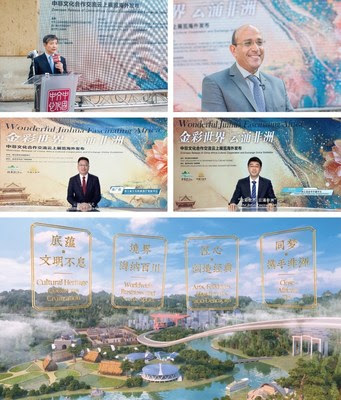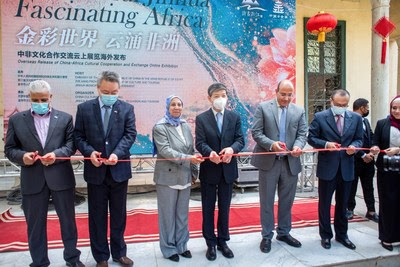BEIJING— China last week played host to the 2022 Africa-China Poverty Reduction and Development Conference in Beijing aimed at enhancing solidarity and focus of cooperation between the two sides.
The inaugural forum, that is part of the Forum on China-Africa Cooperation framework, saw China and Africa unveil an alliance for poverty alleviation. The two sides believe the alliance is an important platform to promote cooperation in poverty reduction and development as well as share China’s experience in poverty reduction for African countries.
During the inaugural ceremony, participants discussed topics such as food security, employment and green development. The delegates unanimously noted that eliminating poverty and achieving sustainable development remains an important area to be explored in the Sino-Africa cooperation.
“The Africa-China Alliance for Poverty Alleviation is a platform, through which the AU can harness the Chinese experience as relevant practical experience to contribute to African poverty reduction,” said Rahamtalla M. Osman Elnor, permanent representative of the African Union to China
The United Nations Resident Coordinator in China Siddharth Chatterjee said China can remain a strong development partner for the Global South: to share its resources, expertise and knowledge with other countries, including those in Africa.
“The UN in China remains committed to supporting China’s international development cooperation efforts, to ensure alignment to recognized international norms and standards, and with a view to accelerate global progress on the SDGs,” he said
During the ceremony, the Vice Administrator of the National Rural Revitalization Administration of China, Xia Gengsheng, argued that while eradicating its own poverty, “China has always been an active advocate, a strong promoter and an important contributor to the international cause of poverty reduction and rural development.”
On his part, the Special representative of the Chinese Government on African Affairs Liu Yuxi noted that China provides the international community with valuable experience in poverty reduction especially having lifted more than 700 million people out of absolute poverty, solving a historical problem that has plagued the nation for thousands of years, and.
“China is willing to share its thoughts, ideas and practices on poverty alleviation and contribute the country’s wisdom to the international cause of poverty reduction. It is also looking forward to strengthening exchanges with Africa and other countries to identify more cooperation opportunities to jointly promote modernization,” said Liu
Liu disclosed that China and Africa plan to set up 20 China-African model villages for agricultural development and poverty reduction in Africa, which have already been implemented in Kenya and Zambia.
“China always firmly support the revitalization of Africa. Hope the newly-founded Africa-China Alliance for Poverty Alleviation will advance Africa development,” Director General of African Affairs at Chinese Ministry of Foreign Affairs Wu Peng said
With the help of e-commerce and other forms of digital platforms, Chinese officials pledged to continue promoting the export of African agricultural products to China, and continue to expand the visibility and reputation of African products in the vast Chinese market.
The conference lauded cooperation strategy between China and Africa on poverty reduction in various fields including agriculture, health, education, human resource development cooperation, infrastructure construction and digital economy cooperation.
Source: NAM NEWS NETWORK


